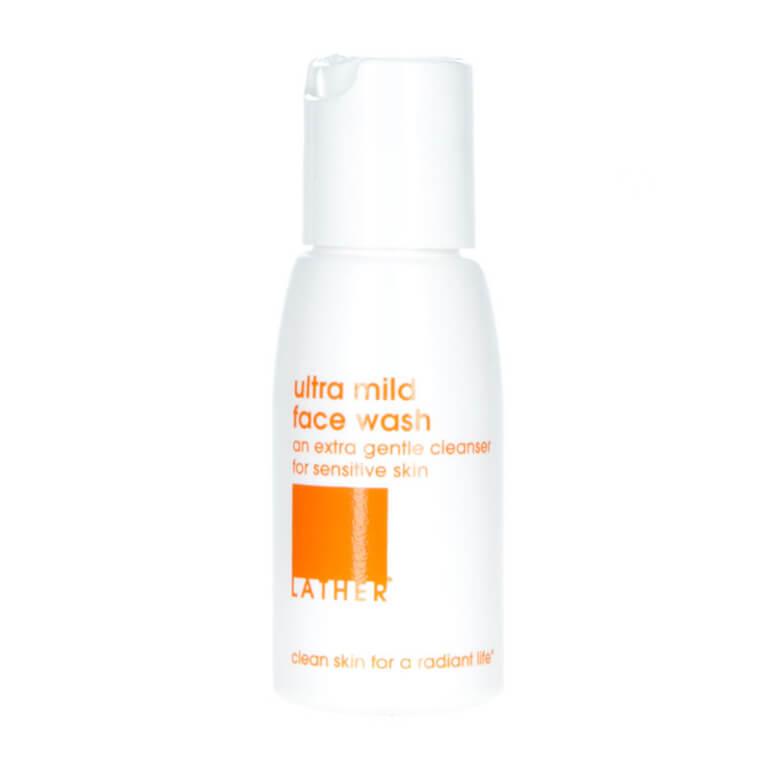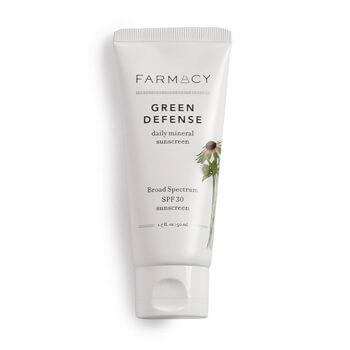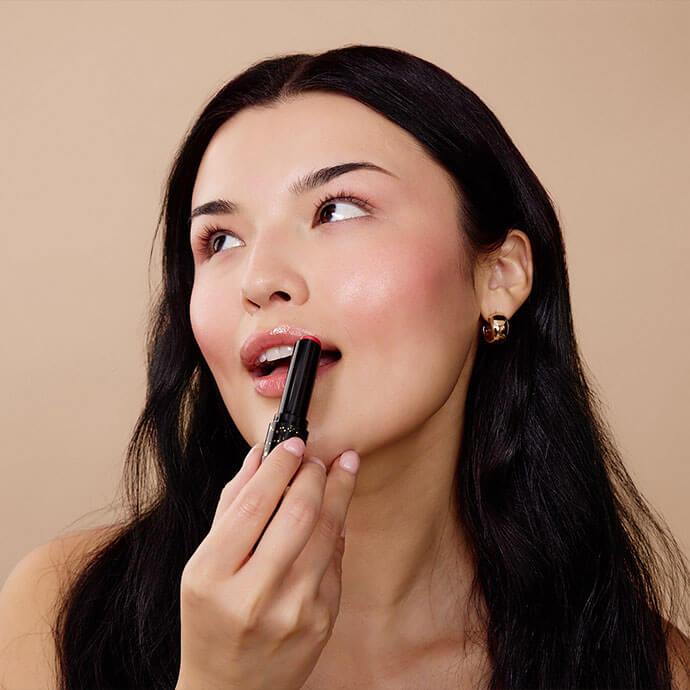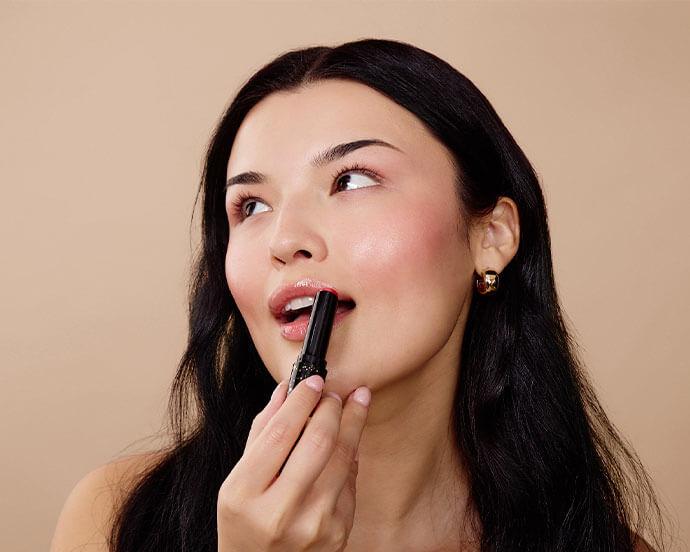Everything You've Ever Wanted to Know About Sensitive Skin



IPSY Editors


You may have heard the term "sensitive skin" thrown around or noticed it on product packaging and wondered, “Does this apply to me?” After all, having sensitive skin is no joke and anyone who has randomly broken out in a rash or experienced itchy or super dry skin knows that choosing the right skincare products is key. We’re here to help you figure out if you fall in that category. And if you do, don’t stress! We’ll share the dos and don’ts of caring for sensitive skin to keep your skin happy and healthy forever.
So, What is Sensitive Skin?
Sensitive skin is a skin type that can get irritated easily and often when you least expect it, says Marisa Garshick, MD, a board-certified dermatologist and Clinical Assistant Professor of Dermatology at New York Presbyterian-Weill Cornell Medicine. Some of the most common reactions include redness, stinging, burning, and dryness. If you truly have sensitive skin, these symptoms (unfortunately) aren’t a one-time thing; they can show up often and can be exacerbated easily.
Sensitive skin isn’t a ‘one size fits all condition’—the severity can range from daily flare-ups to more occasional reactions from certain irritants or chemicals. In addition to the physical aspect, having sensitive skin can also affect one’s self-esteem, confidence, and mood.
What Are the Causes of Sensitive Skin?
While it would be great to pinpoint just one thing that causes sensitive skin, there are actually many factors. First and foremost: your genes. Sensitive skin can be genetic, as many people who are predisposed to skin conditions like eczema or rosacea may find their skin to be more sensitive, says Dr. Garshick.
The weather is another big trigger for sensitive skin. Lack of humidity, cold temperatures, or dryness in the air can all cause irritation to sensitive skin, shared Dr. Garshick. There are also environmental factors, like pollution and sun exposure, that have been known to cause sensitive skin. That bad sunburn that you hoped would turn into a tan can actually make your skin sensitive, even if it wasn’t before.
How Do I Know if I Have Sensitive Skin?
There are many ways to tell if you have sensitive skin. Below, we break down a few of the most common signs of skin sensitivity:
Rashes: People with sensitive skin might be more prone to rashes and small red bumps that spread quickly. This is your skin’s way of telling you it doesn’t agree with an external element.
Redness: If your skin easily flushes—whether or not you have rosacea—and doesn’t disappear immediately, this is a telltale sign of sensitivity.
Itching or burning: Those with this skin type may experience occasional or consistent itching or burning due to a reaction to a skincare product or environmental factor.
Dryness: If you notice that your skin is constantly dry, irritated, and even flaky, this is a sign that you have sensitive skin.
Immediate reactions to new skincare: Often times those with sensitive skin will find their skin reacts more to many ingredients and products, says Dr. Garshick.
How Can I Care for Sensitive Skin?


1. Use a Soothing Face Mask
When your skin is inflamed, superficial blood vessels can open and make the skin appear more red—a soothing face mask can be helpful to reduce the redness, says Dr. Garshick. Look for a mask with simple moisturizing and calming ingredients, like aloe vera, shea butter, avocado, chamomile, and cucumber. These ingredients will help boost your natural skin barrier, which will help sensitive skin overall, and soothe any irritated skin you may already have.
2. Patch Test Products
Doing a little prep work can go a long way if you have sensitive skin. When trying a new product, do a little test on a small hidden area of skin and wait 24 hours to see how your skin reacts. If no irritation occurs, you are good to go!
IPSY Tip: To make sure you avoid any skin reactions, look for products specifically labeled as safe for sensitive skin. Often these products are fragrance-free and free of any harsh allergens or irritants that can disrupt your skin.


3. Use A Gentle Cleanser
Creating a skincare routine is one of the most important things you can do to care for sensitive skin. Within your routine, you’ll want to make sure you wash with a gentle cleanser. Washing with a gentle cleanser is really important for those with sensitive skin, as it doesn’t strip your skin of its natural oils which could leave your skin feeling dry and more irritated, says Garshick. Many gentle cleansers are also formulated with hydrating ingredients that can also leave the skin feeling moisturized.
Try a moisturizing face wash specifically formulated for sensitive skin like LATHER Ultra Mild Face Wash. As one Ipster wrote in her Glam Bag review, "I have sensitive skin [and] this was a great product for me." Another Ipster wrote, "This product doesn't dry out my skin and it smells great!"
IPSY Tip: You should also avoid over-washing your face, as this can dry skin out. At most, you'll want to wash your face twice a day–once in the morning and once at night.
4. Avoid Harsh Ingredients
This is where reading labels comes in. Skip any products containing fragrance as these can be irritating on your skin, advises Dr. Garshick. Even natural scents, like essential oils, can cause inflammation. You also may want to avoid some anti-acne ingredients, like benzoyl peroxide and salicylic acid, as they can be drying on already sensitive skin.


5. Wear SPF Daily
While everyone should be wearing sunscreen daily (duh!), this is even more important for those with sensitive skin. Some types of sensitive skin, particularly those who are prone to rosacea, while notice their symptoms can worsen from UV exposure. Dr. Garshick recommends using a sunscreen with physical blockers, like zinc oxide or titanium dioxide, as chemical sunscreens can be irritating for those with sensitive skin. COOLA SUNCARE Full Spectrum 360° Mineral Sun Silk Crème Organic Sunscreen SPF 30 and FARMACY Green Defense are two good ones to try.
6. Use Lukewarm Water When Showering.
While you love a scalding shower, hot water tends to irritate sensitive skin. Keep your showers on the shorter side—long ones can dehydrate skin—and make sure the temperature is tepid, not boiling.
It's about glam time you treated yourself.
Join IPSY

Liked this post? Share!
Related Stories


Skin
Skinimalism Is the Ultimate Stripped-Back Skincare Trend
Published on Jan 22, 2026 • 6 min read


Skin
Spring Is Coming—Is Your Skincare Ready?
Published on Jan 15, 2026 • 4 min read


Skin
The Hydration Sandwich Trend Will Save Your Dry Lips This Winter
Published on Jan 13, 2026 • 4 min read


Skin
What Is the Skin Barrier & Why Is Everyone Talking About It?
Published on Jan 12, 2026 • 6 min read


Skin
The New Year Is the Perfect Time to Get Ahead of Inflammaging
Published on Dec 15, 2025 • 8 min read


Skin
How to Adjust Your Skincare Routine for Mature Skin in the Winter
Published on Dec 4, 2025 • 7 min read


Skin
10 Thanksgiving Foods That Will Have Your Skin Coming Back for Seconds
Published on Oct 15, 2025 • 7 min read


Skin
Skin Texture 101: Your Guide to the Types of Skin Texture and How to Care for Them
Published on Oct 8, 2025 • 14 min read


Beauty Picked Just for You
Get 5 products worth up to $70
Plus exclusive access to epic deals up to 80% off
Starting at just $14/month. Cancel anytime.